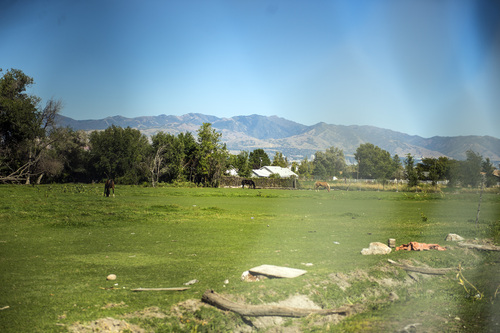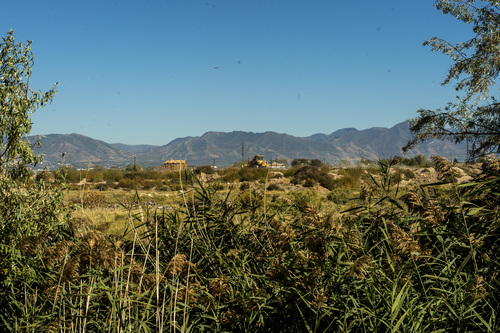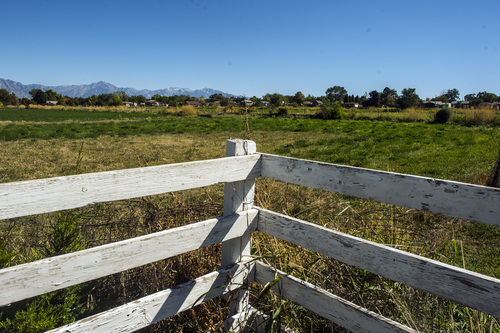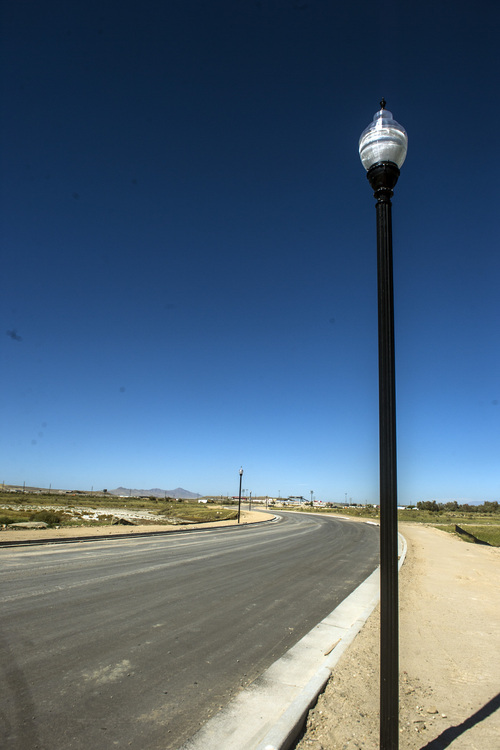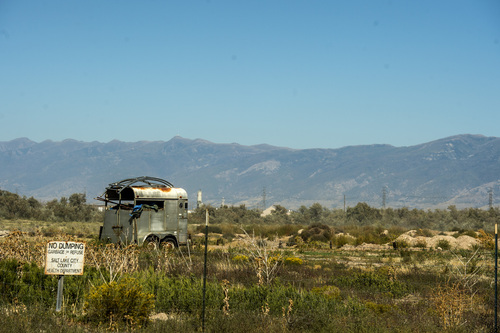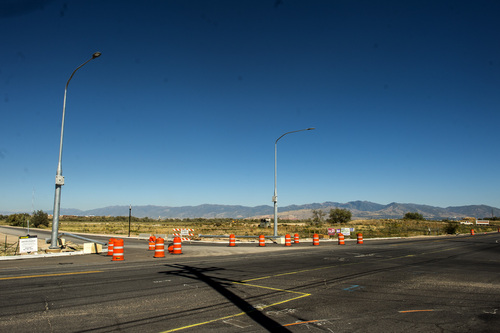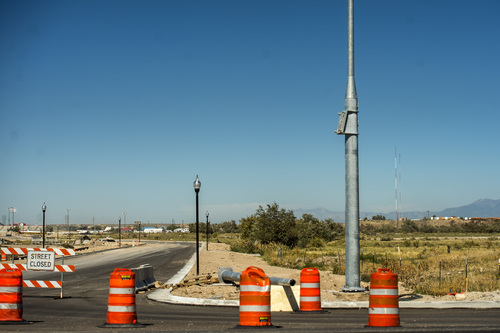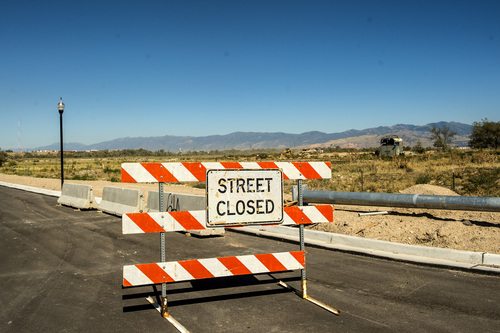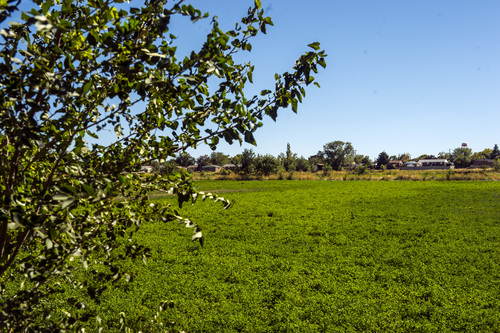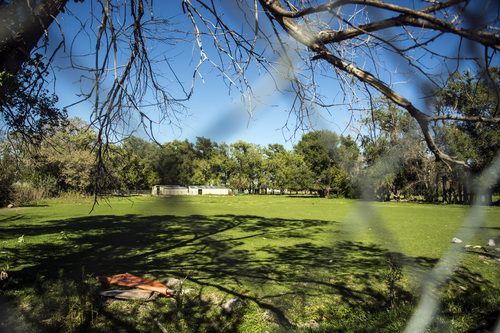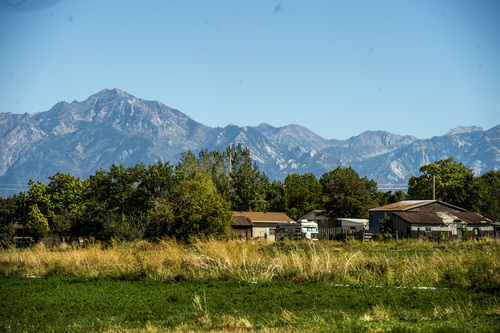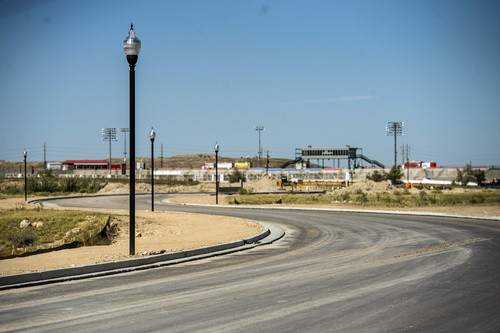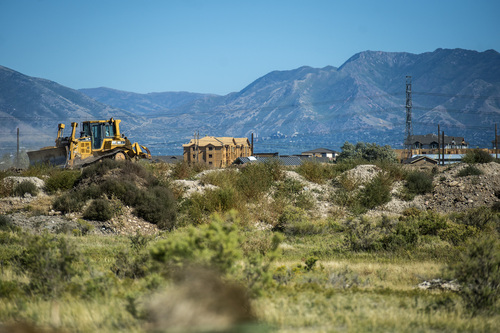Chris Detrick | The Salt Lake Tribune
Open farm land near near 3600 South and 6800 West in West Valley City Wednesday September
Chris Detrick | The Salt Lake Tribune
Open land near the intersection of Parkway Boulevard and 6400 West in West Valley City Wed
Chris Detrick | The Salt Lake Tribune
Open farm land near near 3600 South and 6800 West in West Valley City Wednesday September
Chris Detrick | The Salt Lake Tribune
Open land near the intersection of Parkway Boulevard and 6400 West in West Valley City Wed
Chris Detrick | The Salt Lake Tribune
Open land near the intersection of Parkway Boulevard and 6400 West in West Valley City Wed
Chris Detrick | The Salt Lake Tribune
Open land near the intersection of Parkway Boulevard and 6400 West in West Valley City Wed
Chris Detrick | The Salt Lake Tribune
Open land near the intersection of Parkway Boulevard and 6400 West in West Valley City Wed
Chris Detrick | The Salt Lake Tribune
Open land near the intersection of Parkway Boulevard and 6400 West in West Valley City Wed
Chris Detrick | The Salt Lake Tribune
Open farm land near near 3600 South and 6800 West in West Valley City Wednesday September
Chris Detrick | The Salt Lake Tribune
Open farm land near near 3600 South and 6800 West in West Valley City Wednesday September
Chris Detrick | The Salt Lake Tribune
Open farm land near near 3600 South and 6800 West in West Valley City Wednesday September
Chris Detrick | The Salt Lake Tribune
Open land near the intersection of Parkway Boulevard and 6400 West in West Valley City Wed
Chris Detrick | The Salt Lake Tribune
Open land near the intersection of Parkway Boulevard and 6400 West in West Valley City Wed
Chris Detrick | The Salt Lake Tribune
Open farm land near near 3600 South and 6800 West in West Valley City Wednesday September 24, 2014. The West Valley City Council is poised to implement a six-month moratorium on applications for rezoning to residential zones. Of some 35 square miles of land within city limits, only 300 to 500 acres remain open. The moratorium will give city officials time to finish the general plan update and decide how the remaining ground should be developed.
Chris Detrick | The Salt Lake Tribune
Open land near the intersection of Parkway Boulevard and 6400 West in West Valley City Wednesday September 24, 2014. The West Valley City Council is poised to implement a six-month moratorium on applications for rezoning to residential zones. Of some 35 square miles of land within city limits, only 300 to 500 acres remain open. The moratorium will give city officials time to finish the general plan update and decide how the remaining ground should be developed.
Chris Detrick | The Salt Lake Tribune
Open farm land near near 3600 South and 6800 West in West Valley City Wednesday September 24, 2014. The West Valley City Council is poised to implement a six-month moratorium on applications for rezoning to residential zones. Of some 35 square miles of land within city limits, only 300 to 500 acres remain open. The moratorium will give city officials time to finish the general plan update and decide how the remaining ground should be developed.
Chris Detrick | The Salt Lake Tribune
Open land near the intersection of Parkway Boulevard and 6400 West in West Valley City Wednesday September 24, 2014. The West Valley City Council is poised to implement a six-month moratorium on applications for rezoning to residential zones. Of some 35 square miles of land within city limits, only 300 to 500 acres remain open. The moratorium will give city officials time to finish the general plan update and decide how the remaining ground should be developed.
Chris Detrick | The Salt Lake Tribune
Open land near the intersection of Parkway Boulevard and 6400 West in West Valley City Wednesday September 24, 2014. The West Valley City Council is poised to implement a six-month moratorium on applications for rezoning to residential zones. Of some 35 square miles of land within city limits, only 300 to 500 acres remain open. The moratorium will give city officials time to finish the general plan update and decide how the remaining ground should be developed.
Chris Detrick | The Salt Lake Tribune
Open land near the intersection of Parkway Boulevard and 6400 West in West Valley City Wednesday September 24, 2014. The West Valley City Council is poised to implement a six-month moratorium on applications for rezoning to residential zones. Of some 35 square miles of land within city limits, only 300 to 500 acres remain open. The moratorium will give city officials time to finish the general plan update and decide how the remaining ground should be developed.
Chris Detrick | The Salt Lake Tribune
Open land near the intersection of Parkway Boulevard and 6400 West in West Valley City Wednesday September 24, 2014. The West Valley City Council is poised to implement a six-month moratorium on applications for rezoning to residential zones. Of some 35 square miles of land within city limits, only 300 to 500 acres remain open. The moratorium will give city officials time to finish the general plan update and decide how the remaining ground should be developed.
Chris Detrick | The Salt Lake Tribune
Open land near the intersection of Parkway Boulevard and 6400 West in West Valley City Wednesday September 24, 2014. The West Valley City Council is poised to implement a six-month moratorium on applications for rezoning to residential zones. Of some 35 square miles of land within city limits, only 300 to 500 acres remain open. The moratorium will give city officials time to finish the general plan update and decide how the remaining ground should be developed.
Chris Detrick | The Salt Lake Tribune
Open farm land near near 3600 South and 6800 West in West Valley City Wednesday September 24, 2014. The West Valley City Council is poised to implement a six-month moratorium on applications for rezoning to residential zones. Of some 35 square miles of land within city limits, only 300 to 500 acres remain open. The moratorium will give city officials time to finish the general plan update and decide how the remaining ground should be developed.
Chris Detrick | The Salt Lake Tribune
Open farm land near near 3600 South and 6800 West in West Valley City Wednesday September 24, 2014. The West Valley City Council is poised to implement a six-month moratorium on applications for rezoning to residential zones. Of some 35 square miles of land within city limits, only 300 to 500 acres remain open. The moratorium will give city officials time to finish the general plan update and decide how the remaining ground should be developed.
Chris Detrick | The Salt Lake Tribune
Open farm land near near 3600 South and 6800 West in West Valley City Wednesday September 24, 2014. The West Valley City Council is poised to implement a six-month moratorium on applications for rezoning to residential zones. Of some 35 square miles of land within city limits, only 300 to 500 acres remain open. The moratorium will give city officials time to finish the general plan update and decide how the remaining ground should be developed.
Chris Detrick | The Salt Lake Tribune
Open land near the intersection of Parkway Boulevard and 6400 West in West Valley City Wednesday September 24, 2014. The West Valley City Council is poised to implement a six-month moratorium on applications for rezoning to residential zones. Of some 35 square miles of land within city limits, only 300 to 500 acres remain open. The moratorium will give city officials time to finish the general plan update and decide how the remaining ground should be developed.
Chris Detrick | The Salt Lake Tribune
Open land near the intersection of Parkway Boulevard and 6400 West in West Valley City Wednesday September 24, 2014. The West Valley City Council is poised to implement a six-month moratorium on applications for rezoning to residential zones. Of some 35 square miles of land within city limits, only 300 to 500 acres remain open. The moratorium will give city officials time to finish the general plan update and decide how the remaining ground should be developed.


